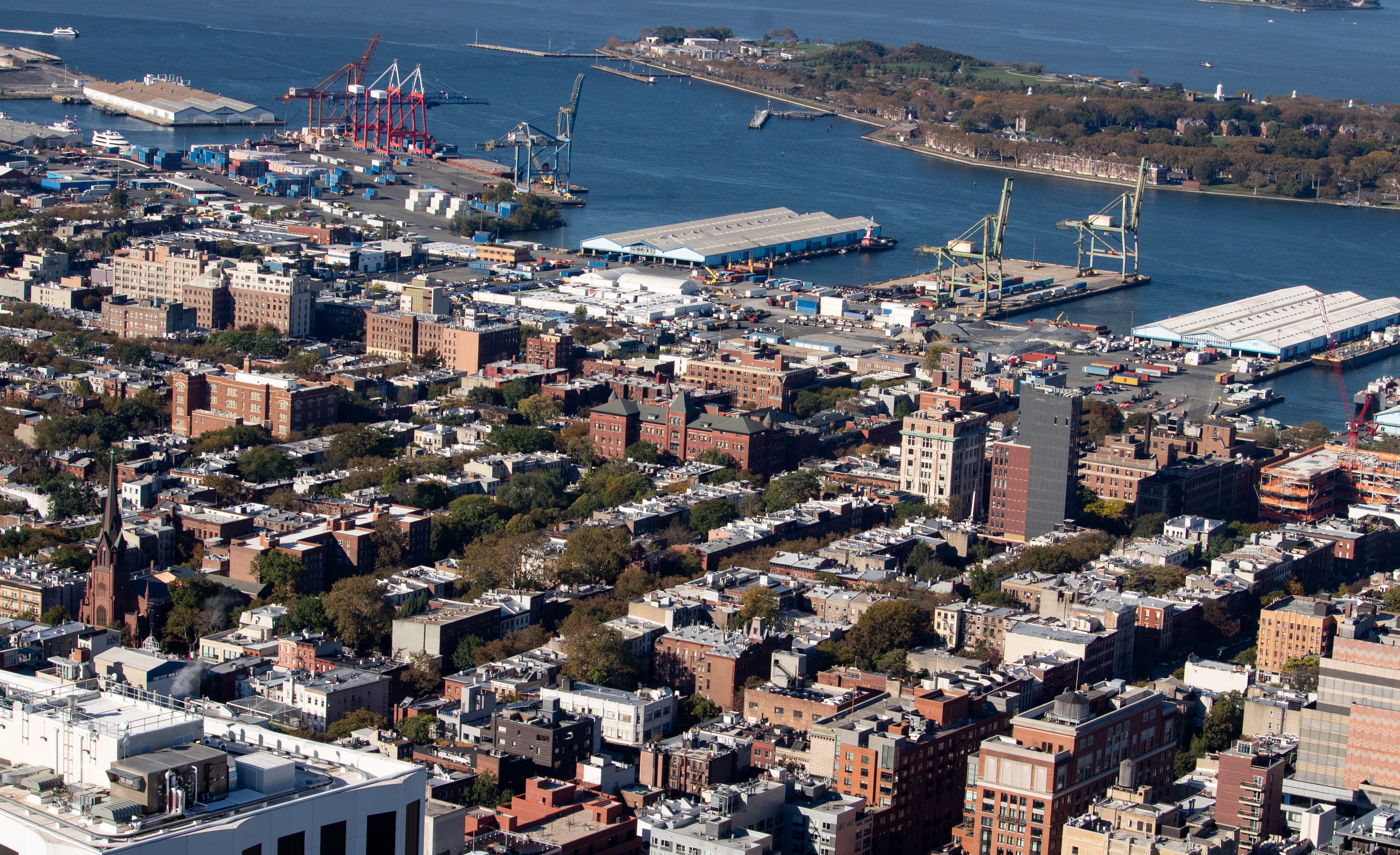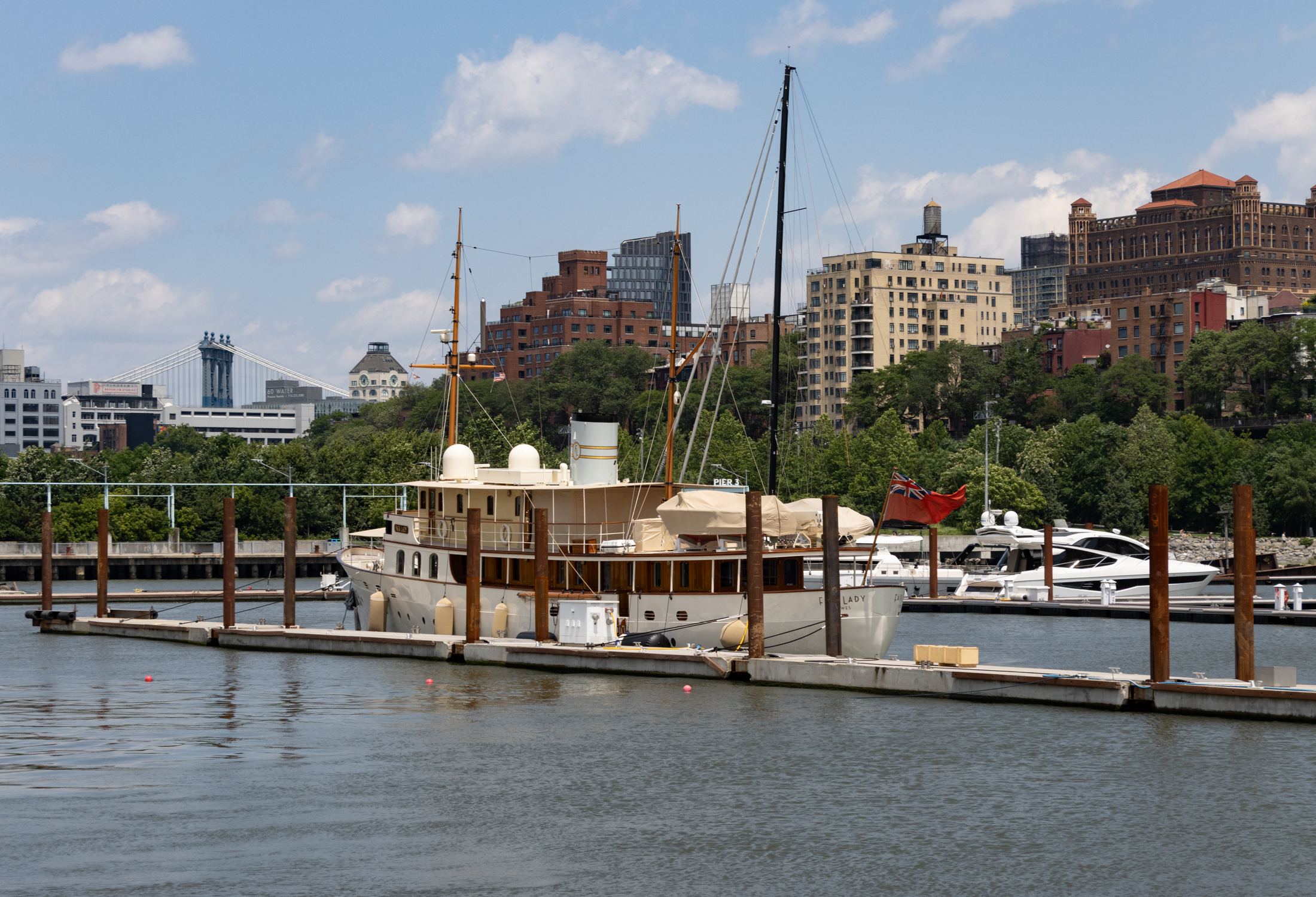Tuesday Links
Another Flea, This Time at Fulton [NY Times] The Week in Crime: Back for More? [NY Times] Brooklyn Leads NYC in Charter Schools [NY Daily News] Two Shot Dead in Brooklyn Park [NY Daily News] Two Charged in Decade-old Murder [Brooklyn Eagle] Brooklyn Residents Divided over Traffic Change [CBS] Photo by lostinbrooklyn


Another Flea, This Time at Fulton [NY Times]
The Week in Crime: Back for More? [NY Times]
Brooklyn Leads NYC in Charter Schools [NY Daily News]
Two Shot Dead in Brooklyn Park [NY Daily News]
Two Charged in Decade-old Murder [Brooklyn Eagle]
Brooklyn Residents Divided over Traffic Change [CBS]
Photo by lostinbrooklyn





This thread is the sort of discussion I love to see on B’stoner!
(Gratuitous nitpicking here, but Crispus Attucks died at the Boston Massacre, not Bunker Hill.)
Brooklynnative, again, I basically agree with you on all points. Our founding fathers, for all of their brilliance, inspiring rhetoric, and bravery, were imperfectly human, with feet of clay and glaring blindspots toward their own hypocrisy, especially regarding slavery and freedom for all.
But a battle reenactment is just that, designed to show what war was like at that time, as bxgrl said, and to remind us of how awful it was, and also to celebrate the bravery and courage of those who fought on both sides. If someone goes out of weekends in short pants and a ruffled shirt, sleeps in a canvas tent rolled up in his cape, and has to dig a latrine, or reenact a battle in the freezing rain, I think he will be able to think twice about the wisdom of war in general, and the price of freedom. That’s a good thing for everyone. It would be a great thing if the only wars we fought were in period costume, and everyone went back home to their families on Sunday night.
The purpose of re-enactments is not to recreate an entire era- indeed that would be impossible- but to provide a window into the reality of life at the time as ordinary people would have experienced it. They are very specific recreations of historic events and not meant to be philosophical treatises.
Re-enactments are not whitewashing or glorifying slavery. They are simply re-enactments of specific events and their purpose is to bring to life what what was like at the time. Until you see a re-enactment, you may not understand how devastating a musket ball was, or have heard the terrible sounds of men and horses dying, or know how terrible wounds were cared for on the battlefield.
And all of those things have particular relevance today but the majority of people in this country have insulated themselves from the cost of democracy. No matter what the politics may have been, it was the average man and woman who paid the most. Something I wish our politicians with their fancy offices and fat wallets would remember.
I guess it’s a very complicated question. The presence of African Americans must be remembered without forgetting their pain and suffering. The problem, in my mind, with using Revolutionary War or Civil War renactements as the occasion to remember the significant role African Americans played in this country’s history is that these types of events tend to glorify, or should I say “whitewash” the history of this country. The War of Independence was one of the greatest events in human history and dramatically advanced the cause of liberty and democracy. However, it accomplished these goals by, in part, sacrificing the interests of African Americans which was an explicit bargain reached by the leaders of the war effort. It was a huge moral dilemma. For those white Americans who considered the dilemma, they largely determined that by not comprosing on the issue of slavery, they would lose the war to the British and slavery would continue anyhow. Pragmatically speaking, the War of Independence could not have been won if the Northerners had not compromised to the South on the issue of slavery. However it was a deal with the devil and I think that that issue gets lost during these re-enactments.
Brooklynnative, I hear you. The “fruits of the tree of liberty” certainly were not ours for hundreds of years. HOWEVER, we were still there, and that needs to be seen.
As a student growing up, we didn’t see or hear about black people in this country until the issue of slavery and the Civil War came up. Nothing prior, and nothing between the Civil War and the Civil Rights Movement. Thank goodness my parents were able to fill in some of the gaps with the factual history of the names, places and events that showed we made real contributions to the history and culture of this country. Whether or not we were done right by the colonialists, and we certainly weren’t in most cases, and the fact that we were used as pawns by the British doesn’t negate our presence. We need to be at these reenactments, we need to be in Civil War reenactments, and anywhere else we actually were. I don’t think that’s a PC revision of history, it’s a far more accurate portrayal of it, instead.
Update from lostinbrooklyn’s flickr set posted by a viewer:
“To remember the men who fought here, it was an honor for the reenactors of the 1st Rhode Island Regiment “The Black Regiment” to participate in Battle Week 2009 at Greenwood Cemetery.”
So, 1st regiment, not 2nd, my bad.
These reanactors we’re from the original Rhode Island 2nd Regiment (if I remember correctly what the gentleman,an with the stylish goatee said).
R.I. had a policy, I assume derived by the large Quaker population, o purchasing slaves and freeing them, in this case to volunteer to fight the British.
Sideways conscription perhaps? Allowing the Quakers (or the R.I. population) to participate in the battle w/o violating their religious tenets? Or just patriotism on the freed slaves part?
Your guess is a good as mine, but it was a great demo from the reanactors. Hope they are back next year.
Montrose, from my reading of the revoluationary war, I’m not sure I would participate if I were a person of color. The Brits promised freedom to the slaves if they would fight for the British side and then after the war did not really uphold their end of the bargain. The American side considered such a policy but never refused to enact it because of the slave holding South. Some African Americans did fight for the American side but I think it was pretty few.
It was an incredibly complex situation, basically a revolutionary war and a civil war at the same time. In the end, blacks, unfortunately, gained little with the War of Independence. Perhaps the biggest victory was it started people asking why shouldn’t the same principles of liberty and democracy apply to African Americans? Even after the Civil War, so little was gained for African Americans still living in the South and then segregation, which was new, got imposed in the North. This country has a terrible history of racial persecution and we should never forget that.
You all envision the Union League Club as a bastion of republicanism but in reality it was formed to further the principle’s of Abraham Lincoln. In fact….
A few months later, the members decided to make an unmistakable gesture that they had not been intimidated. The club decided to recruit, train and equip a Colored infantry regiment for Union service. The 20th U.S. Colored Infantry was formed on Riker’s Island in February 1864. The next month, it marched from the Union League Club, down Canal Street and over to the Hudson River piers to embark for duty in Louisiana. In spite of numerous threats, the members of the Union League Club marched with the men of the 20th, and saw them off. During World War I, the club sponsored the 369th Infantry, the famed Harlem Hellfighters, which was commanded by William Hayward, a club member.
Here’s the whole history…
http://en.wikipedia.org/wiki/Union_League_Club_of_New_York